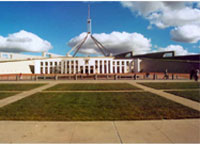|
||||||||||||||||||||||||||||||||
| Political Economy | ||||||||||||||||||||||||||||||||

The study of Political Economy introduces students to the competing approaches to understanding the operation of a modern market economy. Unlike traditional economics programs, which are mathematically orientated, Political Economy takes a historical perspective and focuses on the application of principles to the 'real' world.
Political Economy also exposes students to a diverse range of ideas that compete for support, rather than a set of uncontroversial principles. As such, the study of Political Economy draws on many of the other social sciences,while providing students with critical skills sought by employers. Students engage with a range of theories from the classical tradition of Smith and Ricardo, to the radical ideas of Marx and his followers, to the orthodox principles of neoclassical micro and macroeconomics, and to the heterodox theories of Keynes and the Post Keynesians. Students will apply these ideas to major policy issues, such as the environment, unemployment,inequality, and international trade. Studying Political Economy at UNSW The study of Political Economy is primarily through the School of Social Sciences and International Studies and the School of Economics. At the undergraduate level, a core program of courses is available to students enrolled in the Bachelor of Arts and in the Bachelor of Social Science. An Honours year is also available for high achieving students.
Political Economy can be studied in the following Programs
|
||||||||||||||||||||||||||||||||



